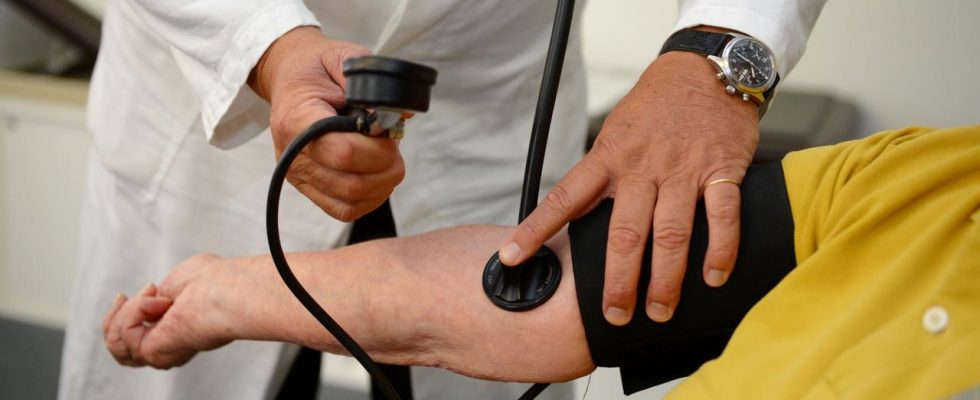In parallel to the hospital reform, Health Minister Lauterbach also wants to improve care in practices. To this end, he is planning relief for family doctors. However, the health insurance companies see this as a burden for the contributors.
No successor to the family doctor’s practice in the countryside, full waiting rooms and months of waiting for an appointment with a specialist – health care is strained in many places. The Federal Ministry of Health wants to take countermeasures and ensure on-site care across the board.
A bill that… ARD capital studio is now being voted on within the federal government. Accordingly, Federal Health Minister Karl Lauterbach (SPD) is planning a series of measures for the “Health Care Strengthening Act”.
In the future, family doctors should be able to bill for their services without cuts. Previously there was an upper limit. In addition, an annual “flat rate” is to be introduced for the treatment of chronically ill patients who are constantly receiving medication.
More patients, shorter waiting times
This is intended to avoid patients having to come to the practice for follow-up prescriptions. Overall, this flat rate should allow more treatment freedom. Nursing home or home visits should also be paid extra.
The overall aim is for the practices to treat more patients. At the same time, full waiting rooms should be avoided.
According to the draft, “health kiosks” should also open in regions and districts with many socially disadvantaged people – as easily accessible advice for treatments and prevention. The “right of initiative” for this lies with the municipalities; existing premises or buses could also be used.
74.5 percent of the costs should be borne by statutory health insurance companies, 5.5 percent by private health insurance and 20 percent by municipalities. In 2025 there could be an estimated 30 kiosks nationwide, and around 220 by 2028.
Psychotherapeutic offerings for children and young people should also be improved. For this purpose, a new group of doctors should be formed to plan needs. This enables “more targeted control of branch options” for corresponding practices.
With the support of health insurance companies, Lauterbach also wants to create 5,000 additional medical study places in order to combat the shortage of doctors.
“Many medical practices at their limit”
Green health expert Janosch Dahmen told the dpa news agency that this would finally mean an improvement in practice care and a strengthening of resident doctors. “Many medical practices are working at their limits.” The aging population suffers from this.
“This is now evident when looking for specialist appointments in cities as well as in primary care in rural areas.” The overdue structural reforms should now under no circumstances be further delayed or even blocked in the cabinet.
Strong criticism from health insurance companies
Sharp criticism of the proposed law comes from the health insurance companies: The Association of Substitute Insurance Funds sees the plans as a further financial burden for those paying contributions to statutory health insurance. The association explained that the plans concern public services.
As part of the planned hospital reform, Lauterbach brought into play a 50 billion euro transformation fund, half of which is to be paid for by the health insurance companies. “The policy of one-sided burdens must come to an end. We need a real law to strengthen pension provision and not another law to burden contributors,” explained the CEO of the Association of Substitute Funds, Ulrike Elsner.
No real improvement for patients
Lauterbach’s actions are unacceptable. In addition, there are measures that do not bring any noticeable improvement in care for the insured, but are expensive. As an example, she cited the elimination of upper limits on the remuneration of general practitioners.
The AOK federal association is also critical of Lauterbach’s plans: the law is a “colorful general store” that does not provide convincing solutions for better outpatient care, explained CEO Carola Reimann. “So instead of structurally improving people’s outpatient care, the income of the medical profession is being optimized.”
Eva Ellermann, tagesschau, March 26, 2024 3:04 p.m

